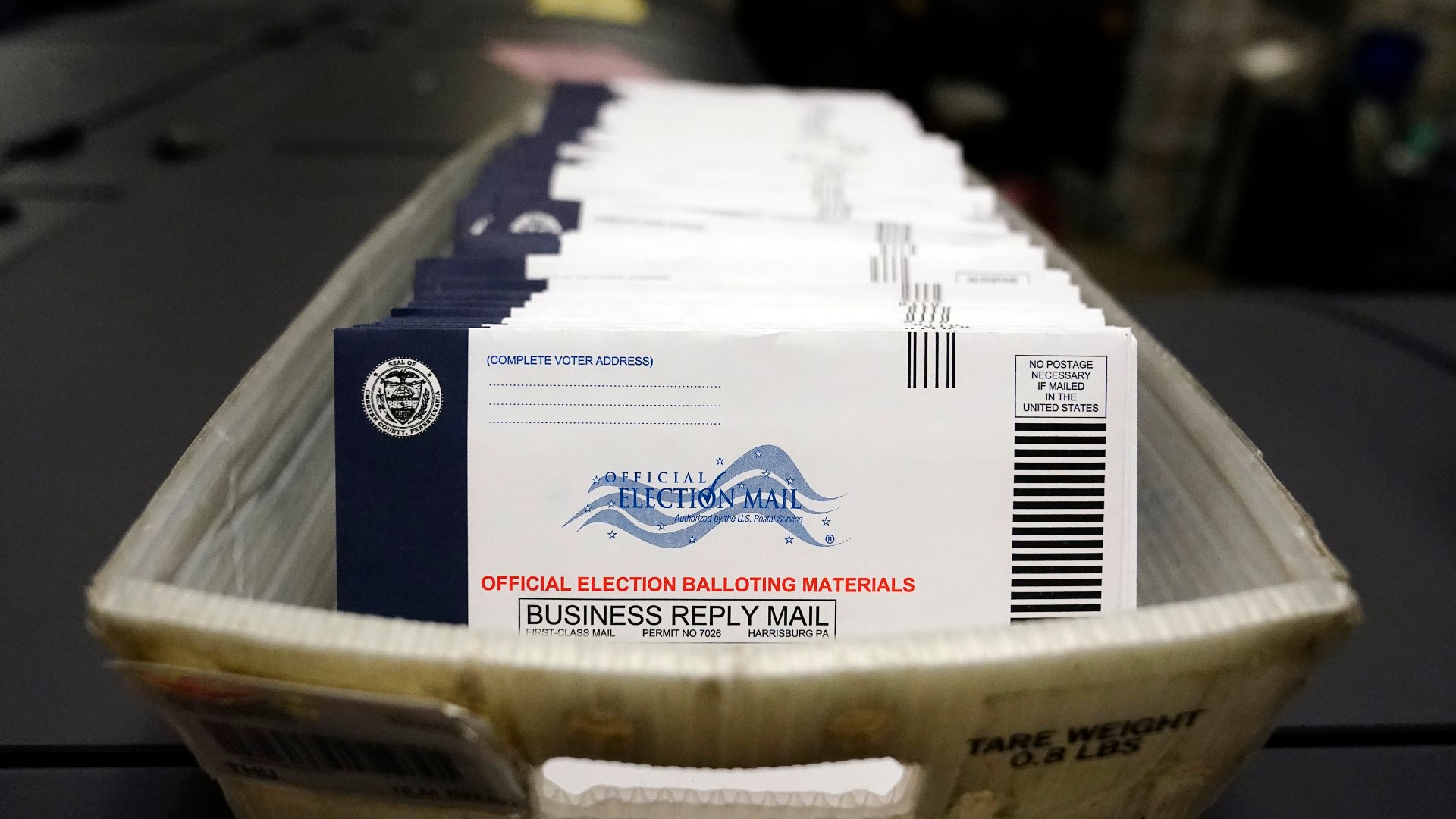PENNSYLVANIA, USA — Pennsylvania's top state elections official is pushing back against a county district attorney's plans to have detectives monitor ballot drop box locations ahead of the upcoming primary and prosecute violations, warning that the plan could intimidate voters.
Acting Secretary of State Leigh Chapman's letter sent late Thursday to Lehigh County District Attorney James Martin also said Martin's concerns about people dropping off more than one ballot needed to take into account the legal right disabled voters have to designate someone else to drop off their completed ballots.
“As you can imagine, law enforcement officers, whether they be in uniform or in civilian clothes, positioned near a ballot drop box may very well dissuade eligible voters as well as authorized designated agents from legally casting ballots,” Chapman wrote.
The state American Civil Liberties Union chapter and a group of like-minded organizations also wrote Martin this week, making many of the same arguments and asking him to “immediately cease and desist” the plan to monitor the county's five drop boxes and to stop “dissemination of false information about return of mail ballots.”
The groups called his public statements and plan to monitor drop boxes “an intimidation tactic designed to discourage legal forms of voting.”
Martin was asked by county elections officials to look into the local Republican Party's claims that drop boxes had been used in October and November to drop off more than one ballot. After a review of security video he concluded last month that the practice had likely occurred hundreds of times in Lehigh County last year.
He followed up last week by telling voters they were “placed on notice” about the law and said county detectives would be checking security video and monitoring drop boxes in person for the May 17 primary. He said violators could be prosecuted and that penalties of up to two years in jail and $2,500 fines were authorized under state law.
“We’re not in the business of trying to intimidate voters or deprive disabled people of the opportunity to have their ballots cast,” Martin said in a phone interview Friday. “It’s overexaggerated by the people who have made those claims.”
He urged the county to post more visible, more explicit warnings at the drop boxes and limit their hours but acknowledged no evidence has arisen to suggest the drop boxes have been used to tamper with votes or cast fraudulent votes.
As a result, additional signs have been posted but the hours were not changed, said county elections director Tim Benyo.
“We found no smoking gun was the term I used,” Martin said. “We found multiple instances of people dropping more than one ballot. Usually two.”
The state's website lists drop boxes in at least 22 counties, from rural areas with a single drop box to the populous suburban Philadelphia counties that maintain multiple locations. Mail-in ballots can also be dropped off at county elections offices.
The state Supreme Court gave its blessing to drop boxes in September 2020, two months before the presidential election in which Joe Biden carried the state over Donald Trump. Drop box supporters have noted the Legislature’s own review found they have functioned properly and were secure.
Mail-in ballots, made widely available under a 2019 law in which Republican negotiators allowed their universal use in exchange for ending straight-ticket voting, have proven far more popular among Democrats. That has fueled Republican opposition and driven efforts to limit their use. Last month the state Senate voted on party lines to ban them, although Democratic Gov. Tom Wolf would likely veto the legislation.
Chapman said this week that by Tuesday's registration deadline, counties had received some 850,000 requests for mail-in ballots, and about 650,000 were from Democrats.
York County this week removed its only drop box, saying the government did not have sufficient staff to adequately monitor it. In Berks County, the existence of two drop boxes has been a bone of political contention. Berks' two boxes are each monitored by two deputies during the hours that they are open. They have double-locking mechanisms and get sealed overnight to prevent tampering.

